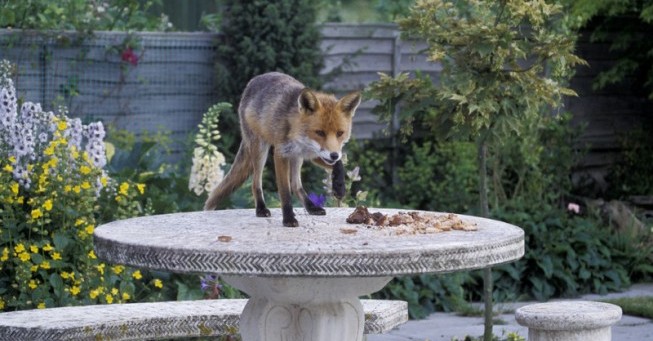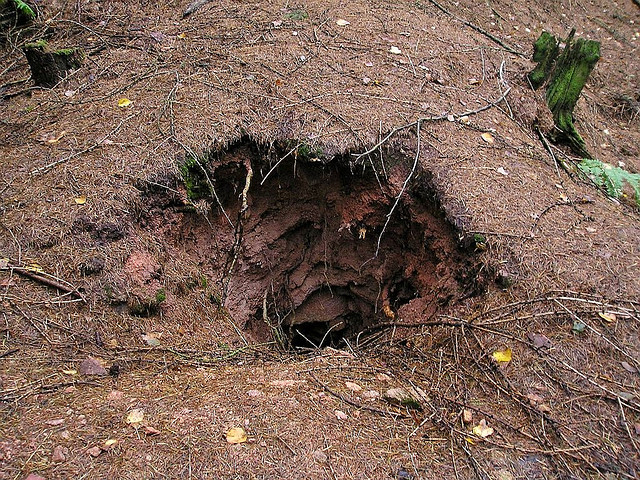How To Keep Foxes Out Of Your Garden

Foxes are beautiful animals, but they are still not something that you would want to find in your garden or your yard. For the most part, foxes tend to avoid getting involved in human affairs, but if there is a chance of easy food they may well pay you a visit. Thankfully, foxes tend to avoid garden vegetables and ornamental plants, but they will still eat fruit and they will dig in flowerbeds.
Foxes are also a concern from another perspective. If the opportunity presents itself, foxes will kill small pets and livestock, and they do have the ability to kill household pets. So keeping foxes out of the garden and the yard may be a question of safety as well!
While there are no sure-fire ways of making sure foxes stay out, there are multiple approaches that you take to protect your garden and your pets.
Option 1: Get Rid Of The Appeal
Unlike most garden pests, foxes aren’t usually interested in your garden specifically. Instead, they might be interested in something like pets, livestock or your compost pile. If you can safely house what is potentially tasty or interesting to them, it can often be enough to get them to leave your yard alone.
For example, if a fox is interested in your compost pile, you might want to consider investing in a compost bin or some fencing specifically around the compost. You also want to make sure that you don’t have bags of garbage or easily accessible garbage bins left outside. These can be very yummy for hungry foxes and for other pests, and make it much more likely that your yard will be invaded.
Likewise, you need to make sure that any outside pets are housed securely. This includes using a frame with sturdy wire and a secure floor to prevent foxes digging. Foxes can be very stubborn when it comes to food, so they will often go to lengths to try and get at small animals, especially the avian kind.
If possible, a more practical solution may be to keep pets indoors if you have a significant fox problem. This will almost always be safer than trying to securely house the pets outside. At the same time, doing this helps to make the yard less appealing for foxes.
Option 2: Scent-Based Deterrents
Foxes can sometimes be deterred by scent. One example of this is when a fox thinks that a larger animal has claimed an area. Some places sell tiger, bear, or other predator urine, and even feces that can be used for this purpose. Other people have taken the approach of using urine from human males as a way to scent mark the territory. Sounds like an easy solution for me (I’m a dude) but if your a single lady it might be hard to ask your male neighbor to pee on your fence.
There are also a range of chemical repellants that are designed to keep foxes (and often other pests) away from the yard, and you can also make your own. One natural option is cayenne pepper and all you have to do is sprinkle it around the perimeter of the garden. The problem with that option is that I found you need A LOT of it to cover a larger area, so it can get expensive.

Option 3: Deal With Fox Holes
Foxes will frequently make homes in or around your yard. Commonly this includes places like under garden sheds, under building foundations or in bramble patches. If you find a fox hole on your property, then you need to convince the foxes to move out of it before you can be rid of them. These holes might be large or small, as an adult fox is able to get through a hole that is just 5 inches across.

photo credit: Flickr
One approach getting foxes to move out is to loosely block any exit or entry holes with either straw or rags soaked in a fox deterrent. The foxes will remove the obstruction, but just keeping it back up. Once you notice that the blockage hasn’t been removed for a few days, you will know that the foxes have moved out. At that time you can block up the holes permanently using stones, bricks, or even cement.
It is critical that you wait until the foxes have moved out before you attempt to permanently seal any holes. If you seal the holes when animals are still in the den then you may trap them in there and eventually kill them. This is both inhumane and impractical, as the bodies would decompose in the den, and now you’ll have a rotting corpse smell in your yard.
Option 4: Motion Sensor Sprinklers
Foxes are predators, but that doesn’t mean they aren’t scared of the unknown. One surefire way to give them a shock (in more ways than one) is by using a motion sensor sprinkler. The double prong attack of a startling noise and a face full of cold water is enough to scare any animal away, no matter how hungry they are. It’s instinct!
This is a humane, and consistent way to keep foxes out of your yard. Every time they try to enter a no-fly zone, they will get sprayed. After a while, they will simply get frustrated and move on. These sprinklers solved my cat problem, and sparked my interest in creating this website.
The best value you can get right now is the Orbit Yard Enforcer 62100, and it has many good reviews on Amazon. Other similar sprinklers of different brand names have about half the star ratings for a similar price, or are about 3x the cost of this model.
Option 5: Using Physical Barriers
As is normally the case, if you can physically stop foxes from getting into your garden, you have solved most of your problem all at once. However, foxes are great at digging and at climbing, so fencing them out can often be a challenge. For example, foxes can scale a 6-foot fence from a standing start and they can scale even larger fences if there are props handy to help them up (like garbage bins).
Despite this, having a strong fence can be one way of dissuading foxes, making it more challenging to get into your yard. Also, if you have a privacy fence, the foxes cannot simply see into your yard, which can also reduce its appeal.
Categorised in: Animals, Sprinklers
